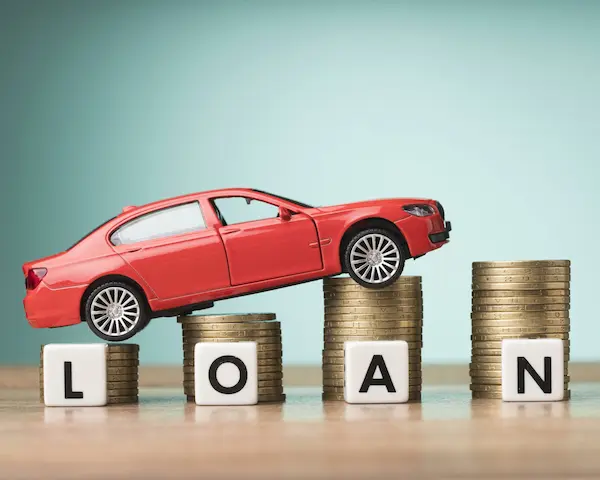When your once-trusted car becomes a clunker, the thought of junking it might cross your mind. But what if you still owe money on your car loan? Can you junk a financed car? The answer lies within the complexities of ownership, liens, and lender involvement.
In this article, we unravel the mystery and provide clarity on this topic. Discover the steps you need to take, the role of your lender, and how to navigate the process smoothly.
If you’re ready to bid farewell to your four-wheeled troublemaker, keep reading to learn how to junk a financed car without hitting a roadblock.
Contents
Understanding Financing And Ownership

Are you wondering can you junk a financed car? Well, car financing plays a significant role in the automotive industry, allowing individuals to purchase vehicles without paying the full amount upfront.
When you finance a car, you secure a loan from a lender to cover the cost of the vehicle. This loan is typically paid off over a predetermined period, usually in monthly installments, including interest.
It’s important to understand that financing a car does not mean you have full ownership rights from the moment of purchase. While you possess and use the vehicle, the lender maintains a legal claim on it until the loan is fully repaid.
This claim is referred to as a lien. The lien serves as collateral for the loan, ensuring that the lender has recourse if the borrower fails to make payments as agreed.
Differentiating car ownership from financial responsibility is crucial. Ownership refers to possessing the vehicle and having the right to use and control it. Financial responsibility, on the other hand, relates to the obligation of repaying the loan and adhering to the terms agreed upon with the lender.
Understanding this distinction is essential when considering whether to junk a financed car. While you may physically possess the vehicle, the lender has a legal interest in it until the loan is settled.
This distinction affects the process of disposing of the car and requires communication and cooperation with the lender to navigate the complexities of junking a financed vehicle successfully.
Legal And Contractual Considerations
When dealing with a financed car, it is important to carefully review the loan agreements and terms to understand your rights and obligations. Failure to comply with the contractual obligations can have significant consequences, including defaulting on payments, which can lead to repossession of the vehicle and damage to your credit score.
Reviewing Loan Agreements And Terms
Loan Agreements

Carefully read and understand the terms and conditions outlined in the loan agreement. Pay attention to details such as the loan amount, interest rate, repayment period, late payment fees, and any penalties or charges associated with early termination or default.
Rights And Obligations
Understand your rights as a borrower and the obligations you have towards the lender. This includes making timely payments, maintaining insurance coverage, and adhering to any other specific requirements outlined in the agreement.
Additional Terms
Some loan agreements may include clauses related to prepayment penalties, refinancing options, or transfer of ownership. Familiarize yourself with these additional terms to avoid any potential surprises or complications.
Consequences Of Defaulting On Payments
Repossession
Defaulting on car loan payments can lead to repossession of the vehicle. The lender has the right to take possession of the car if you fail to make timely payments as agreed upon in the loan agreement. Repossession can have significant financial and logistical implications.
Damage To Credit Score
Defaulting on payments and undergoing repossession can severely damage your credit score. A lower credit score makes it challenging to secure future loans and can result in higher interest rates if you do qualify for financing.
Legal Actions
In some cases, lenders may pursue legal action to recover the outstanding balance on the loan. This can result in further financial consequences, such as wage garnishment or liens on other assets.
Negative Impact On Future Loans
Defaulting on car loan payments and experiencing repossession can make it difficult to obtain favorable terms for future loans. Lenders may view you as a higher-risk borrower, resulting in limited financing options or higher interest rates.
Exploring Alternative Options
Selling The Financed Car

Assessing Market Value And Condition
Before selling your financed car, assess its market value and condition. Research similar cars in your area to determine a fair selling price. Consider factors such as mileage, overall condition, and any additional features that may affect its value.
Considering Lender Involvement
Since the car is financed, contact the lender to understand their requirements for selling a financed vehicle. They may have specific procedures to follow, such as paying off the remaining loan balance before transferring ownership to the buyer
Trading In The Financed Car
Exploring Trade-In Options With Dealerships
Contact local dealerships to explore trade-in options. They can assess the value of your financed car and offer a trade-in amount that can be applied toward a new vehicle. Inquire about their trade-in process and any requirements they have.
Evaluating The Impact On The Loan And Finances
Trading in the financed car can affect your loan and finances. If the trade-in value is less than the outstanding loan balance, you may still owe the difference. Additionally, the trade-in amount can impact the financing of the new car, including interest rates and loan terms. Evaluate these factors before deciding.
Voluntary Repossession
Understanding Voluntary Repossession

Voluntary repossession involves returning the financed car to the lender because you can no longer afford the payments or want to get rid of the vehicle. Notify the lender of your intention and arrange for the car to be returned. Keep in mind that voluntary repossession does not absolve you of the remaining loan balance.
Implications For Credit Score And Future Loans
Voluntary repossession negatively impacts your credit score, similar to involuntary repossession. It signals to lenders that you were unable to fulfill loan obligations, making it difficult to obtain future loans with favorable terms.
Consider the long-term consequences before choosing this option.
Remember to consult with a financial advisor or directly communicate with your lender to understand specific implications and requirements associated with each alternative option.
They can provide personalized guidance based on your circumstances, helping you make an informed decision.
Junking A Financed Car
Overview Of The Junking Process
Junking a financed car involves selling it for scrap or salvage value. The process typically includes the following steps:
Find a reputable junkyard or salvage yard that accepts cars.
Inquire about their requirements and whether they accept financed cars.
Arrange for the car to be towed to the junkyard.
Receive payment based on the scrap or salvage value of the vehicle
Challenges Of Junking A Financed Car
Junking a financed car can present additional challenges compared to a fully paid-off car. Some of the challenges you may encounter include:
Involvement Of The Lender
Since the car is still under a loan, the lender has a financial interest in it. They may have specific procedures for junking a financed car and may require you to pay off the remaining loan balance before proceeding.
Outstanding Loan Balance
If the payment received from the junkyard is less than the remaining loan balance, you will still be responsible for paying off the difference.
Involvement Of The Lender
It is crucial to involve the lender when junking a financed car. Inform them of your intention and inquire about their specific requirements and procedures. They may provide instructions on how to proceed, including paying off the loan balance before transferring ownership to the junkyard.
Seeking Professional Advice
Importance Of Consulting Experts
Seeking professional advice is highly recommended when junking a financed car. They can help you understand the legal and financial implications of your decisions and assist you in making informed choices.
Recommended Professionals To Approach
Consider consulting the following professionals depending on your situation:
Financial Advisor

A financial advisor can help you assess the impact of junking a financed car on your overall financial health. They can provide advice on managing any outstanding loan balance and suggest alternatives that align with your financial goals.
Attorney
If you encounter legal complexities related to the loan or the junking process, it may be beneficial to consult an attorney specializing in consumer law or finance. They can help you navigate the legal aspects and ensure your rights are protected.
FAQs
1. Can A Financed Car Be Junked Without Penalties?
Whether a financed car can be junked without penalties depends on the loan agreement. Some lenders may require the remaining loan balance to be paid off before allowing the car to be junked.
2. What Alternatives Exist For Disposing Of A Financed Car?
Alternatives for disposing of a financed car include selling the car, trading it in with a dealership, or voluntarily surrendering it to the lender. Each option has its own considerations and potential consequences.
Can You Junk A Financed Car: Final Words
Junking a financed car can be a challenging process due to the involvement of the lender and the potential outstanding loan balance.
While it is possible to junk a financed car, it is crucial to review the loan agreement and communicate with the lender to understand their requirements and any penalties involved.
Exploring alternative options such as selling, trading in, or voluntary repossession may also be worth considering. Seeking professional advice can provide further guidance tailored to your specific situation.


